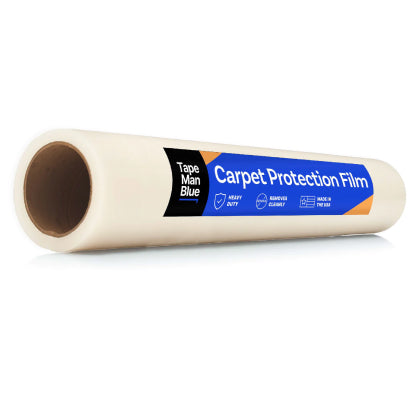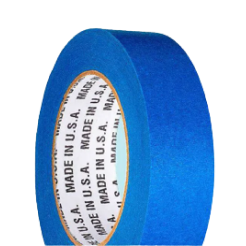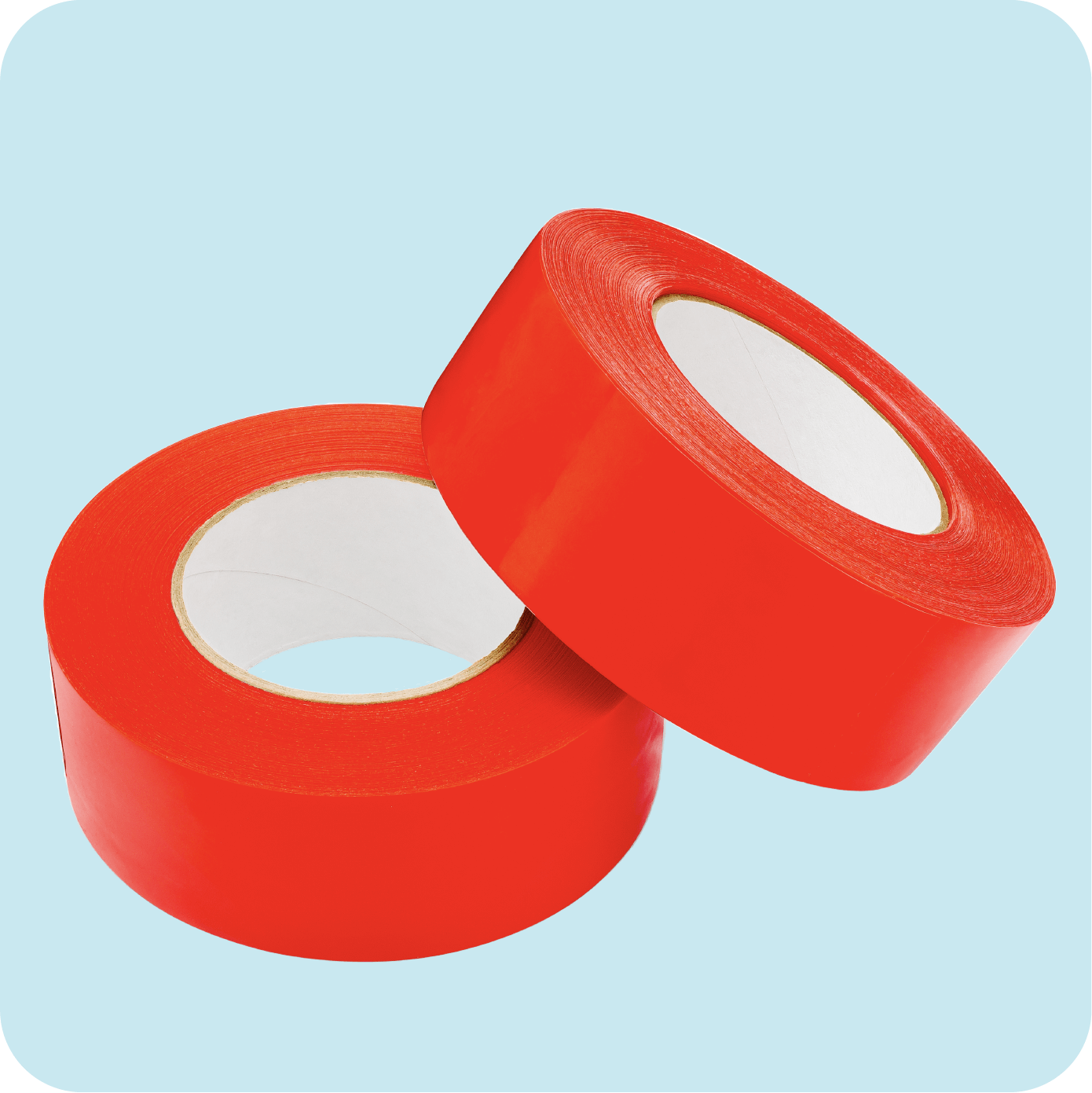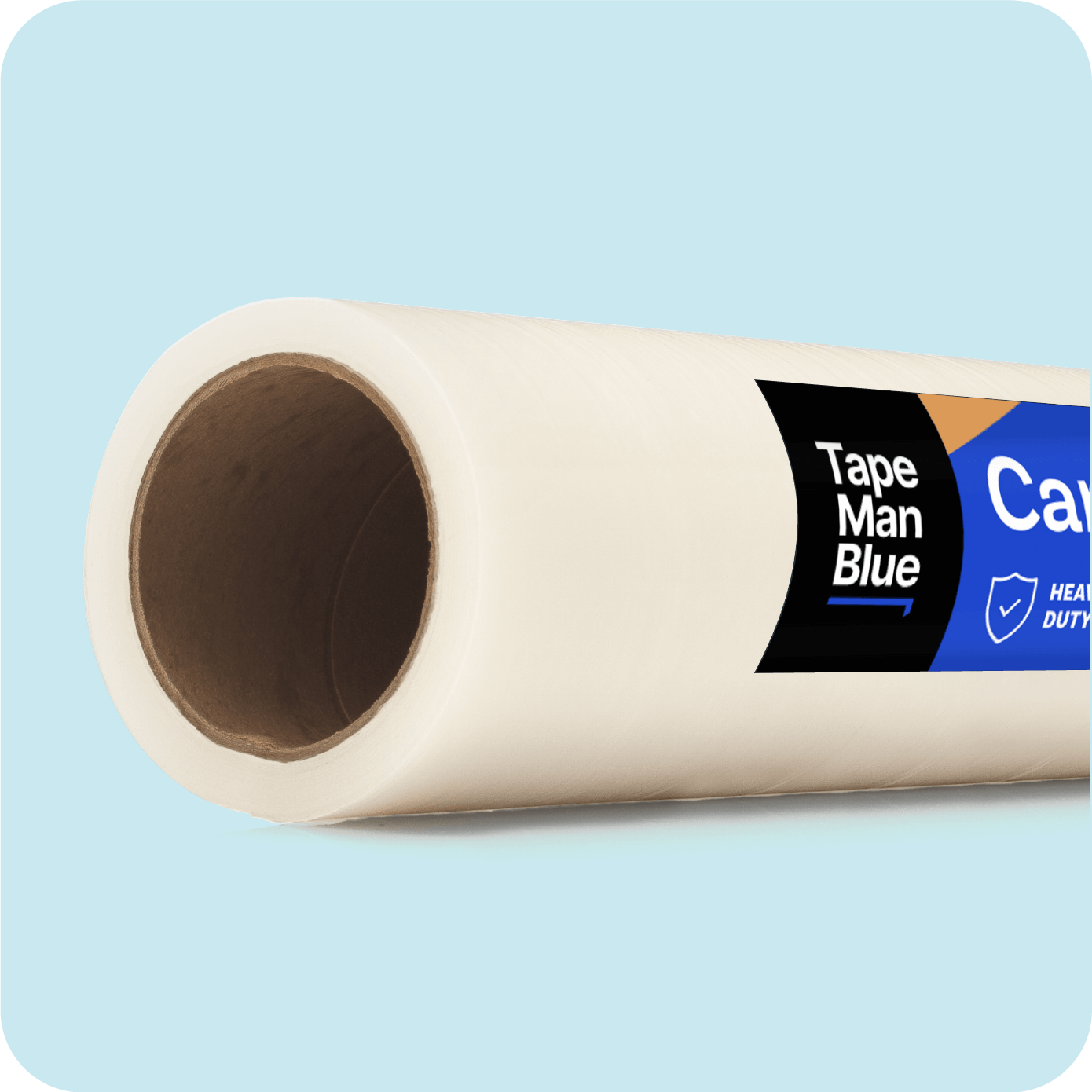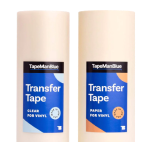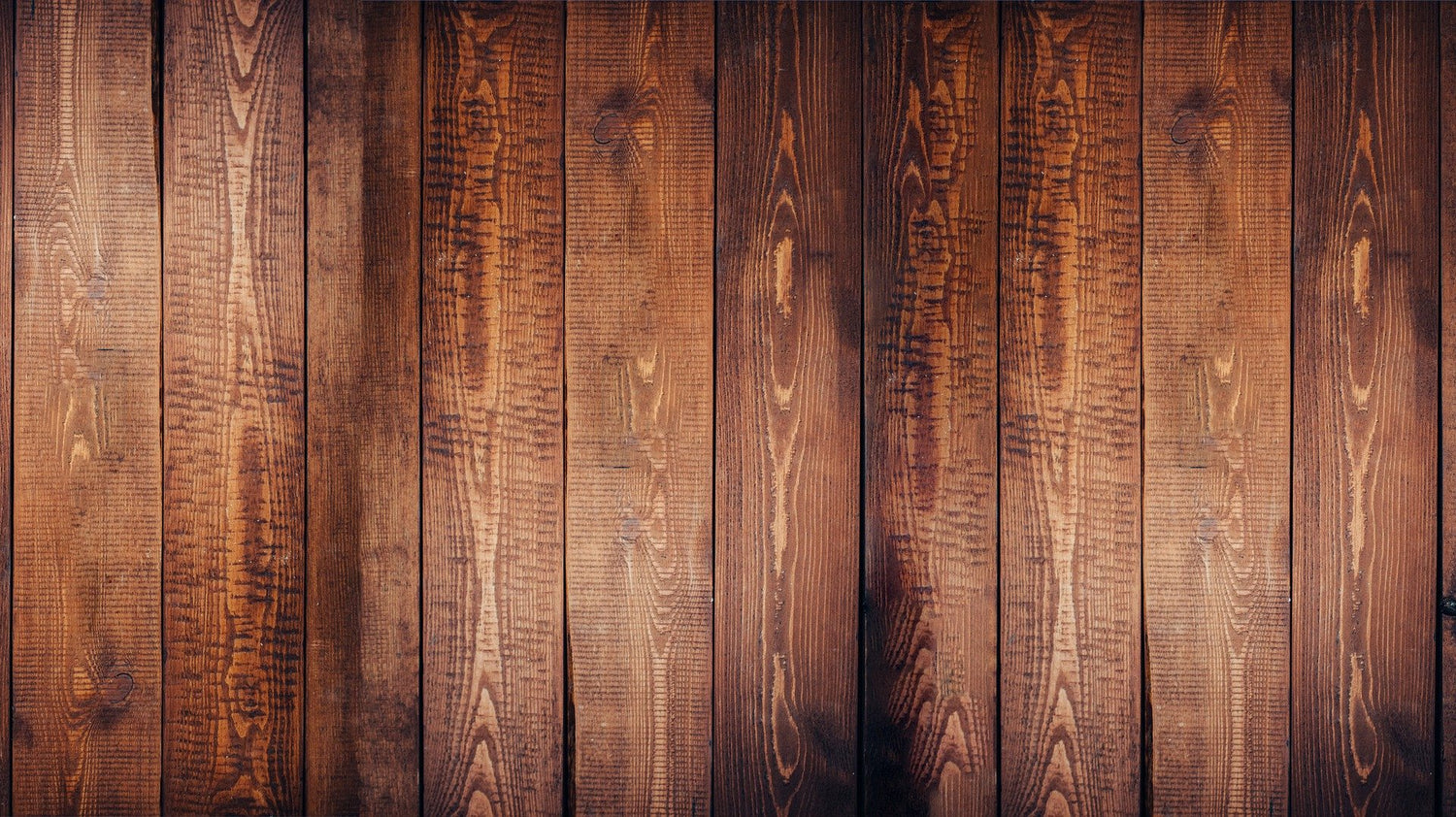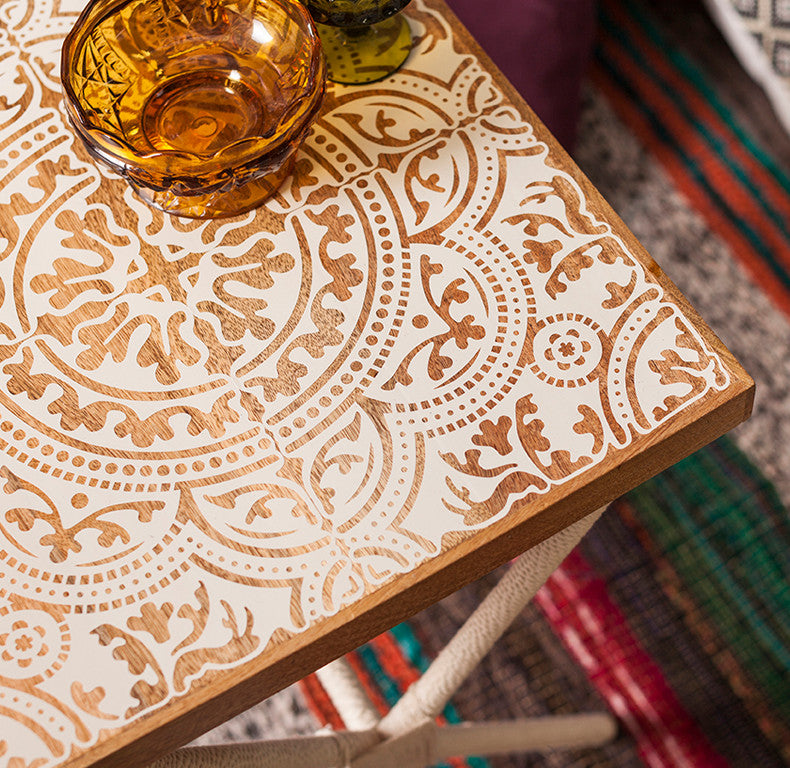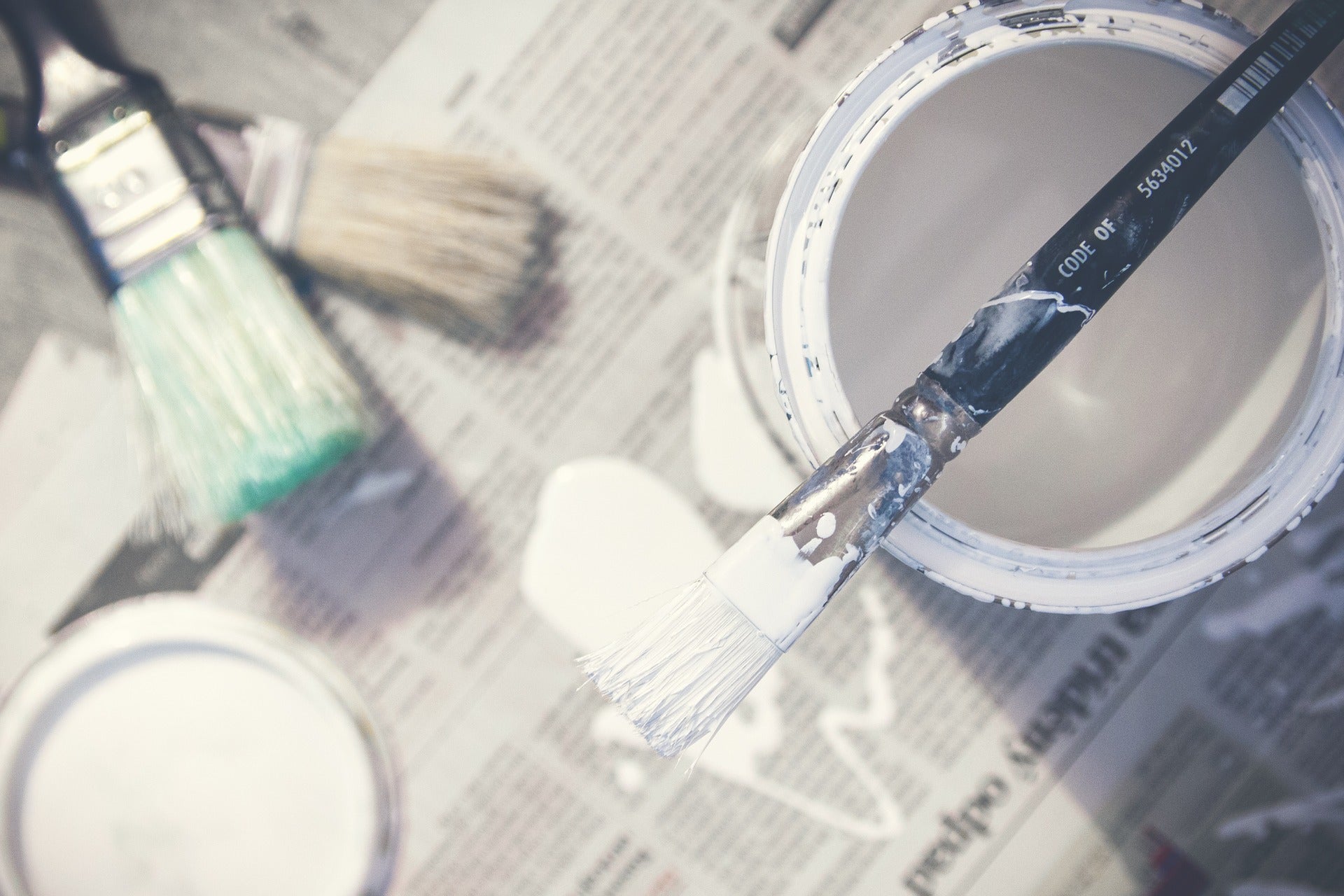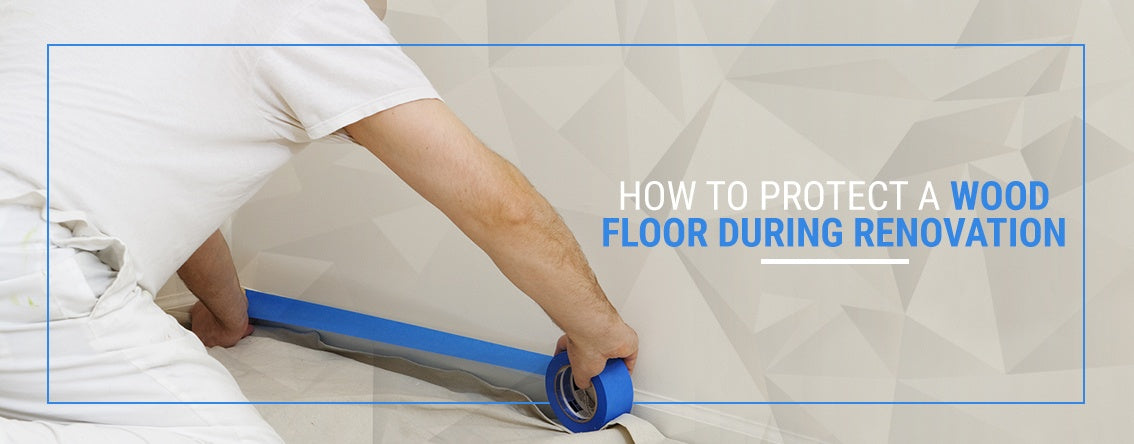
Hardwood floors are sensitive to moisture damage, staining and dents. While you're working on a home remodeling project, you should think about how to protect wood floors so you can provide the best possible service for your client and prevent the need for additional repairs. Consider these five tips for how to protect hardwood floors during your renovation.
1. Cover the Floor Before Starting
The type of covering you use to preserve the floors depends on the kind of renovation project you're completing. If you're using bulky equipment and have lots of foot traffic coming through the work site, you need to preserve hardwood flooring with a sturdy material. If painting, use a slip-resistant protective film to guard the floors against spills.
Before you lay down a floor covering, clean the floors with a broom or a dry cloth to prevent grit from sticking to the flooring. Ditch the clumsy drop cloth and consider these two options for how to protect hardwood floors based on your project specifications:
-
Floor protection film: This wood floor protection is useful when using sharp objects, tracking dirt into a house, or painting. You can apply a polyethylene film with a removable adhesive to hardwood floors before you begin your project. Stick the film directly to the wood. Be sure to read the package instructions for proper use. With TapeManBlue floor protection film, you can leave the film in place for up to 45 days without damaging the floor. The adhesive quality of a hardwood floor covering can prevent creases and tripping hazards.
Shop Floor Protection Film
- Specialized floor cardboard: For heavy-duty projects with bulky equipment, you can prevent floor dents by laying down specialized cardboard. Stick the cardboard to the floor with blue painter's tape to keep it from sliding on the wood paneling and scratching it. The painter's tape can also help prevent residue and grit from getting under the cardboard.
2. Use Painter's Tape
Use blue painter's tape and cardboard together at your work site to protect wood floors during a painting project or while moving heavy equipment. Whether the hardwood floors are original or brand new, they are a significant investment. High-quality blue painter's tape leaves no residue behind when used correctly, and it's perfect for indoor or outdoor use due to its UV resistance.
Here are some tips to get the most out of painter's tape for a home renovation project:
- Invest in high-quality blue painter's tape with medium-tack adhesion. Too much adhesion could leave residue on the floors, while too little may be ineffective for protecting surfaces.
- Before applying the tape, clean the area so you don't adhere any residue to the floor.
- If the hardwood floors were recently refinished, try attaching the tape to the baseboard instead. Otherwise, blue painter's tape is safe to use directly on the flooring.
- Apply the tape to the threshold with a plastic film to prevent mud from coming into the house.
- Use the tape to keep debris away from any area in the room, including the trim and doorway.
3. Plan a Walking Route in the Home

Be strategic about where you lay a floor protective film throughout the house to keep out mud and other debris. Here are some tips for creating a walking route on the work site:
- Make a functional path: As you work, you may have to walk outside to access the bathroom and the electric panel. Think about locations where you may need to walk before laying down the protective film or cardboard. Clear the route of any obstacles, such as furniture, that could scrape against the floor or cause you to trip.
- Wear protective gear: If your walking path leads outside, consider how to keep mud and grass out of the house. Instead of taking your shoes off and putting them back on, invest in a cheap pair of shoe covers.
4. Clean up Quickly
If you're doing a painting project or working with liquids that could stain, apply film or cardboard over the whole work area to protect wood floors. Clean up any spills on the floor as soon as possible so they have less time to make a stain. Paint that splatters onto the flooring can only be removed by scraping or using a solvent, which could damage the floor.
Besides spills, you should also clean up debris and trash as you work so you can easily control your workspace. If you're working with harsh chemicals, use a fan or keep the window open to allow proper ventilation and maintain the integrity of the floors.
5. Seal the Rest of the Room
In addition to the hardwood floors, apply blue painter's tape around vulnerable areas of the room. Dust or harmful chemicals could make their way into sensitive room features and eventually trickle down to the floor. These parts include:
- Baseboard molding: If you're painting a room, keep paint and other substances away from the baseboard molding with blue painter's tape. You could use a sheet of cardboard over thick baseboard molding and stick it in place with the tape. A flat tool, such as a credit card or a scraper, can be more effective in smoothing out the tape than pressing your fingers against it.
- Doorways: When you're carrying a ladder or heavy furniture into the house, apply cardboard and painter's tape to the wood trim around the entryway to prevent dents or cracks. These dents could chip and leave residue on your hardwood floors.
- Stairs: If you have hardwood stairs, treat them with the same care you would for the floors. Use a slip-resistant material, like a protective film, over the entire surface of each step.
- Air ducts: The ducts in your HVAC system could suck up dust and spread it throughout the house. Cover these ducts with plastic and stick the film in place with blue painter's tape.
- Wall corners: When moving heavy furniture or operating machinery, you may scrape against a corner, but an angle is difficult to repair. Protect the walls against dust and dents with blue painter's tape and cardboard.
TapeManBlue Helps You Protect Hardwood Floors
At TapeManBlue, we know how to protect wood floors during a renovation. Our floor protection film can keep hardwood safe from dents and debris without leaving a residue. Our high-quality, medium-tack blue painter's tape is a step above our competitors. Browse our inventory of tape and protection film today to find what you need for your home remodeling project.
Shop Floor Protection Shop Blue Painter's Tape
